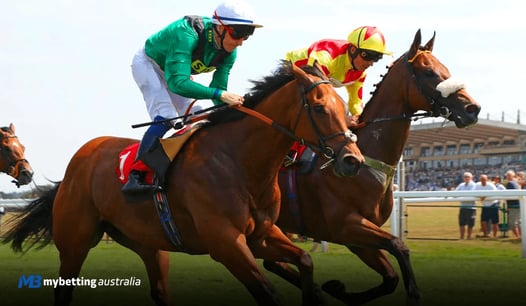News

 By: Sam Hayes
By: Sam HayesTuvalu continues to put wins on the card
Following a win at Warrnambool, Tuvalu looks to have a very big winter ahead.
02/05/2024
Horse Racing Tips
 By: Lachlan Malek
By: Lachlan MalekGRSBet Australia Bookmaker
GrsBet Australia - Upcoming Bookmaker
30/07/2023
Betting Articles
 By: Lachlan Malek
By: Lachlan MalekBookieBet Australia: A Sneak Peek into this Upcoming Bookmaker
Bookiebet upcoming bookmaker in Australia
26/07/2023
Betting Articles.svg)
